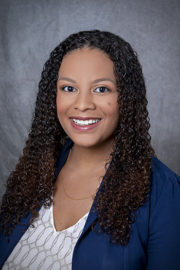
Thoughts on representation and its impact on diversity in medical education
In 6th grade, my grandmother went to the dermatologist for an earlobe repair after years of wearing heavy earrings. When the doctor found out I was interested in medicine, she let me help! There I was -under strict supervision of course- cutting my grandmother’s ear! I remember that day like it was yesterday. That was the day I decided I was going to be a doctor.
This dermatologist was a Black woman, and surprisingly, like many of the other doctors I knew. Growing up in metro Atlanta, I had the very fortunate experience of seeing a multitude of Black physicians. Most of my friend’s and family’s doctors were Black women, and that became my reality. For me, being a doctor was an absolutely obtainable goal.
When I left Atlanta, I quickly realized that the vast socioeconomic variety for Black people was not nearly the same in other regions. In Atlanta, it wasn’t just Black doctors, but there were Black professionals in every field. Immediately, I understood the enormous privilege it was to grow up in such plentiful representation.
Often, I wonder if I wasn’t raised in Atlanta would I even be a doctor? While we will never be able to answer that question, I think about all the children who don’t see themselves reflected in their career interests. So, when people say representation matters, it hits harder to home for me because I am a direct product of it.
Surely the progress we have made over the years has increased the number of Black physicians? No. In fact, the percentage of Black doctors has staggered along 5% of practicing physicians since the 1980’s compared to the 13% of the Black population in the United States.
Increasing the number of Black physicians is critical. Not only so little Black girls can have role models, which I do believe is reason enough, but because racialized health disparities are heinous. Evidence has shown when Black patients are treated by Black physicians, health outcomes are better. In addition, Black physicians are needed to help mend the justified mistrust of medical establishments by the Black community.
The solution to increasing the number of Black physicians is multifaceted. However the prime target is combating systemic racism at all levels of training - beginning even before pre-school. Fostering environments that encourage and support Black students throughout the process is crucial for all professions. And the pathway that is closest to my heart, representation.
 About the Author:
About the Author:
Carmen Simmons, M4 at Meharry Medical College
Carmen is a graduating medical student interested in Family Medicine Obstetrics. She currently attends Meharry Medical College and has an Interpersonal Communications BA from the University of North Carolina at Chapel Hill. With an incredible passion for Women's Health, her goal is to be a vessel of holistic healing in African-American and Latino communities. Follow Carmen on Twitter.
